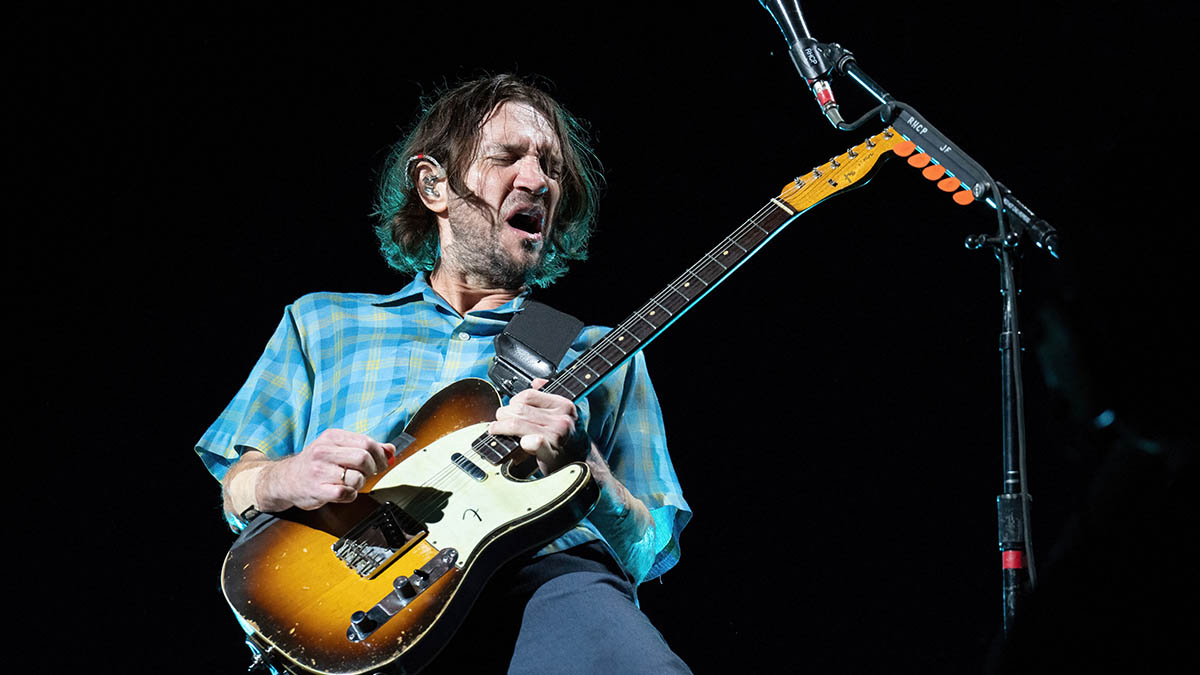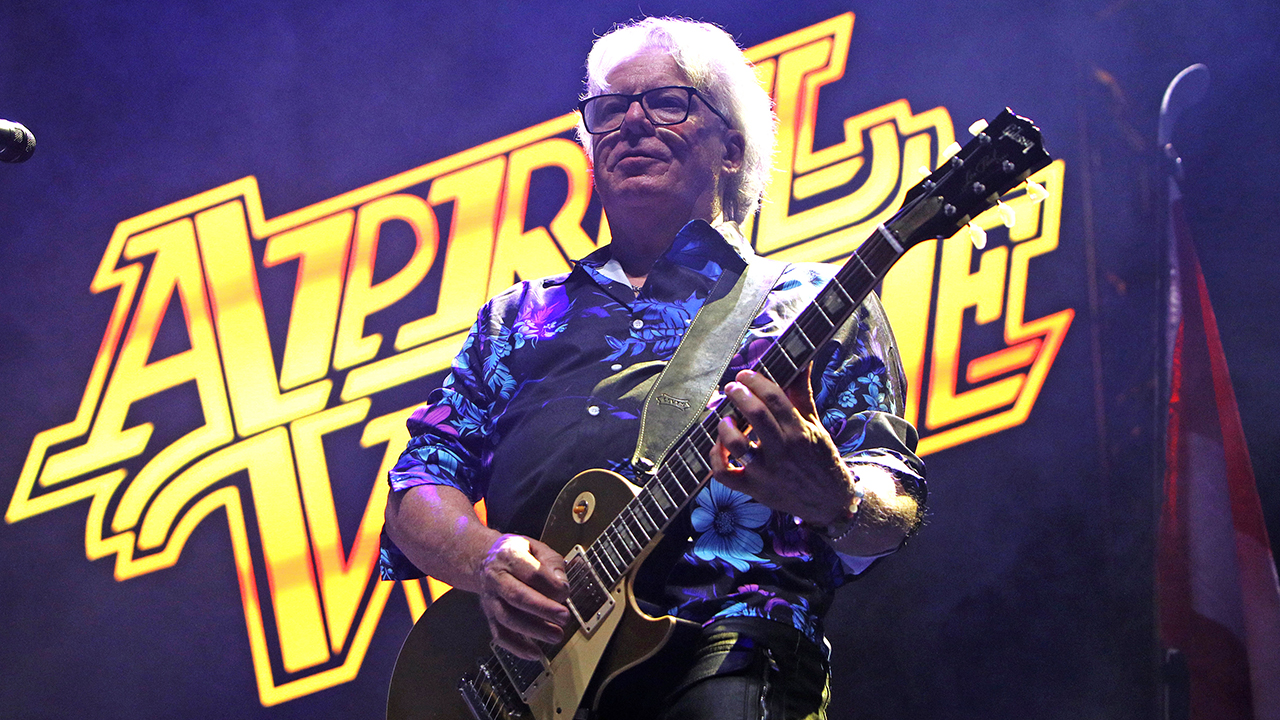Rhythm and lead guitar lessons you can learn from John Frusciante
The Red Hot Chili Peppers guitarist borrows from the best and puts them through his unique filter. Here we take a look at his Hendrix-esque rhythm and fuzzed-out Strat soloing approach

All the latest guitar news, interviews, lessons, reviews, deals and more, direct to your inbox!
You are now subscribed
Your newsletter sign-up was successful
The Red Hot Chili Peppers have endured through multiple line-up changes from their formation in 1983, and are still recording and touring today. They sell out stadiums around the world and continue to be prolific with their output.
Founded in Los Angeles, California the band’s classic line-up is the one that still plays today; vocalist Anthony Kiedis, guitarist John Frusciante, bass player Flea and drummer Chad Smith. Frusciante joined in 1988 after the death of original guitarist Hillel Slovak, and Frusciante himself has been in and out of the band, at one point being replaced by Jane’s Addiction guitarist Dave Navarro.
The Red Hot Chili Peppers’ style is a blend of rock, hip-hop, funk and metal, and it’s Frusciante’s Hendrix influenced playing style that has been the driving force behind many of their biggest hits and most well-known guitar riffs.
The group’s big breakthrough came with the Blood Sugar Sex Magik album in 1991. After a dip creatively and commercially, they built upon this success during the late 1990s and early 2000s with producer Rick Rubin at the helm of albums such as By The Way and Stadium Arcadium.
The Chilis have also delved into various solo projects, including Flea’s acting in Back To The Future Part 2 and the recent Obi-Wan Kenobi Star Wars spin off series, and Chad Smith joining Sammy Hagar, Michael Anthony and Joe Satriani in the band Chickenfoot. Frusciante has released a number of solo albums, too.
Frusciante’s early influences, as well as Hendrix included Jeff Beck and Jimmy Page, and it’s this mix of classic guitar heroes that can be heard in his rhythm and lead playing. The Red Hot Chili Peppers as a band draw from influences as diverse as Metallica, James Brown and Yes.
Our track this month features the types of chord harmony and lead playing for which John Frusciante has become well-known, and you’ll encounter extended harmony embellishments around the chords, as well as modal sounds throughout the piece.
All the latest guitar news, interviews, lessons, reviews, deals and more, direct to your inbox!
We’re in the key of E Minor (E-F#-G-A-B-C-D), but the tonality is E Dorian which contains the notes: E-F#-G-A-B-C#-D. This leads to the A Major chord in the rhythm part (A-C#-E) and even though there’s a Minor sound to the track overall, it isn’t the stereotypical ‘sad minor’ feel but has much more of a bright, upbeat vibe.
The solo largely uses the E Minor Pentatonic scale (E-G-A-B-D), but again highlights the C# note over the A Major chord for something of a bluesy twist.
Get the tone
Amp settings: Gain 8, Bass 5, Middle 6, Treble 6, Reverb 3
John Frusciante is a major devotee of the Fender Stratocaster and has played vintage Strats for much of his career. He likes Marshall guitar amps too and employs fuzz pedals and modulation effects such as chorus, Uni-Vibe and delay. Aim for a vintage Strat style tone if possible, using neck pickup clean tones for the rhythm, and adding fuzz and some delay for the solo.
Example 1. Rhythm guitar
The chord and harmony embellishments should generally be allowed to ring into each other throughout the rhythm guitar part in a way very much reminiscent of Jimi Hendrix, who was a huge influence on John Frusciante, not only in playing style but in tone and equipment choices, too.
Example 2. Lead guitar
The solo generally has a swung feel to it, so even when the notes aren’t written as triplets, aim to keep the swing feel in place. When the fuzz sound is on, really dig in and aim to play aggressively ; this will get the most from the slides that flow into and out of the notes, providing extra impact.
